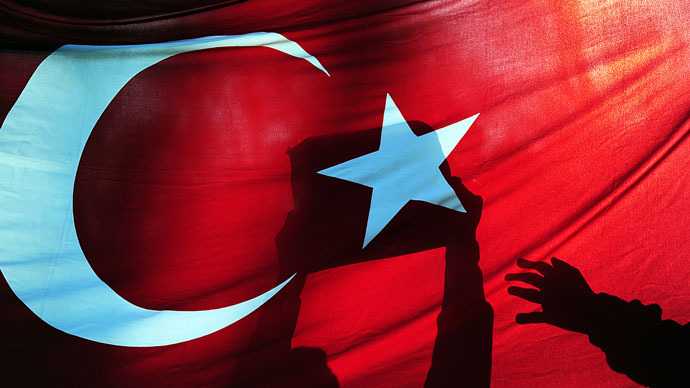By Burak Bekdil, BESA Center
EXECUTIVE SUMMARY: Ankara first attempted to use a commercial boycott as a foreign policy weapon in 1998, when Rome refused to extradite Kurdish nationalist Abdullah Öcalan. Turkey has made scores of national boycott attempts since then, but they invariably lose steam quickly. President Recep Tayyip Erdoğan’s most recent boycott threat against France will be no exception.
Turkey is a big market, so Ankara has a potentially powerful tool at its disposal with which to accomplish foreign policy goals. If 80 million or so Turks collectively refuse to buy products imported from a targeted country, that country is likely to regret whatever wrong it did to Turkey, or so goes the logic. But in all Turkey’s attempts to use this weapon since 1998, it has never succeeded.
As tensions between Turkey and a group of EU countries, most notably France, escalated recently over hydrocarbon exploration claims in the Eastern Mediterranean, Turkey’s Islamist strongman, President Recep Tayyip Erdoğan, reached once again for the obsolete foreign policy instrument.
“Just as France is boycotting Turkish products… I am calling on my nation not to buy French brands,” he said on October 29. That call was problematic for two reasons: first, France had not launched a boycott on Turkish products; and second, the Turkish boycott, if it ever materialized, would be erased from the collective public memory within a matter of days, as occurred on the other occasions in recent Turkish history when the government tried to impose boycotts on the goods of “hostile nations.”
Erdoğan first attempted to impose a national boycott in December 1998, when Italy caught but refused to extradite Abdullah Öcalan, considered by Ankara public enemy number one. (Öcalan, the leader of the Kurdistan Workers’ Party [PKK], stayed at a Roman villa during his sojourn in Italy. He would ultimately be arrested by Turkish intelligence officers in Nairobi in February 1999. Öcalan is currently serving a life sentence at a Turkish prison.)
During Öcalan’s house arrest in Rome, the Turks decided to boycott all things Italian. A Catholic priest only narrowly escaped being lynched. Angry crowds burned their Italian motorbikes, cars, neckties, and shirts in public—an ironic gesture, as the Italian brands’ products were manufactured in Turkey. Some Turks stopped eating pasta (again, Turkish-made).
All well and good, except for the result: Turkey’s imports from Italy rose from $3.1 billion in 1999 to $10.1 billion in 2018. This trend is reminiscent of Turkey’s relations with Israel, from which imports rose from $1.1 billion in 2009 to $1.5 billion in 2017 during a period when the Jewish state was the foremost object of hatred among the Turkish public.
Turkish anger often contains an element of dangerous farce. In 2015, to protest China’s treatment of its ethnic Turkic minority, the Uighurs, crowds in Istanbul attacked a South Korean tourist group in the mistaken belief that they were Chinese. The same year, Turkish crowds attacked the Russian consulate in Istanbul instead of the Dutch mission building because they had mixed up their flags. Apparently flags with blue, white, and red stripes are a source of perennial confusion in Turkey: In 2017, angry Turks who wanted to protest the Netherlands publicly burned the French rather than the Dutch flag. In the same year, Erdoğan party loyalists stabbed oranges in order to protest the Netherlands (orange is the color of the Dutch royal family.)
In October 2018, the Turkish lira was in yet another downward spiral against major western currencies, especially the US dollar, due to political tensions between Ankara and Washington. A few months later, President Donald Trump would threaten to devastate the Turkish economy. Erdoğan blamed the lira’s slide on international conspirators. He defended the lira by saying, “They have their dollars; we have our Allah.” He called on Turks to boycott American electronic devices, especially Apple, and to sell their foreign currencies to buy lira.
As it always does, Erdoğan’s base obliged—to a point. The people took to the streets to protest America, smashed mock Apple smartphones, and burned fake American dollars. Barbers gave free haircuts to patrons who could prove they had sold a few dollars to buy lira. Yet the Turks’ foreign currency bank deposits rose from $170 billion in 2018 to $201 billion in March 2020.
Back to the Turkish boycott of French products, with some context: In 2001, the French legislature recognized the Armenian genocide. In response, Turkey threatened to freeze all economic and political ties with France. This time the Turks took to the streets and burned their French belongings—yet during the Turkish boycott/freeze, the countries’ two-way trading volume rose from $4 billion in 2001 to nearly $15 billion in 2011, an increase of 275%.
France raised the stakes when it said it would pass laws to criminalize denial of the Armenian genocide. In retaliation, from December 2011 to February 2012, Turkey threatened (again) to freeze all economic, military, and political ties with France.
Ankara said it would freeze “all cooperation with the French government and joint projects [and] introduce punishing restrictions on French military vessels and aircraft passing through Turkish waters and airspace or docking on Turkish soil.” According to then PM Ahmet Davutoğlu, the French bill to criminalize genocide denial “dishonored our country and nation.”
This set forth a new Turkish philosophy on the Armenian genocide: You can recognize it, but we will be angry if you criminalize the denial that it happened. Recognition of the genocide does not “dishonor our country and nation,” but criminalizing its denial does.
In March 2018, Turkish Airlines confirmed that it would buy 25 Airbus A350-900 aircraft in a contract worth nearly $10 billion. No doubt the Turkish boycott story will continue in the background.
Burak Bekdil is an Ankara-based columnist. He regularly writes for the Gatestone Institute and Defense News and is a fellow at the Middle East Forum.





